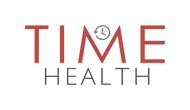
Libido, or sex drive, is a key part of overall well-being, influenced by a mix of hormones, physical health, mental state, and lifestyle choices. While it's normal for sexual desire to fluctuate, a persistent drop can be frustrating and may indicate an underlying issue. Understanding what affects male libido – and how to naturally support it – can help restore energy, confidence, and overall vitality.
What Can Cause Low Libido in Men?
A reduced sex drive often stems from multiple factors, making it difficult to pinpoint a single cause. Identifying these influences can help in finding effective ways to restore balance.
Hormones and Testosterone Levels
Testosterone is the primary male sex hormone, playing a crucial role in libido, energy, and overall physical health. A gradual decline in testosterone begins in a man’s 30s, but lifestyle factors, stress, and poor sleep can accelerate this process. Low testosterone levels can lead to fatigue, reduced motivation, and a lack of sexual desire. Other hormonal imbalances – such as elevated cortisol from chronic stress or insulin resistance from poor diet – can also contribute to a drop in libido.
Medications and Their Effects on Libido
Certain medications can interfere with testosterone production or alter neurotransmitters responsible for sex drive. Antidepressants – particularly SSRIs – are known to impact libido, as they affect serotonin levels in the brain. Blood pressure medications and treatments for prostate issues may also reduce sexual desire or affect performance. Even anabolic steroids, which some men use for muscle growth, can have long-term effects on natural testosterone production, leading to hormonal imbalances.
Diet, Lifestyle, and Energy Levels
A poor diet lacking essential nutrients such as zinc, magnesium, and healthy fats can negatively impact testosterone production and overall vitality. Excessive alcohol consumption, smoking, and a sedentary lifestyle can impair circulation and hormonal balance, further reducing libido. Sleep deprivation is another major factor, as deep sleep is when the body produces the most testosterone. Without sufficient rest, hormone levels may drop, leading to fatigue and a decrease in sexual motivation.
Stress and Mental Well-being
Chronic stress elevates cortisol levels – the body’s primary stress hormone – which can suppress testosterone production and deplete energy reserves. High cortisol levels also interfere with neurotransmitters such as dopamine and serotonin, which influence mood, motivation, and pleasure. Over time, excessive stress can create a cycle of fatigue, low mood, and reduced sexual desire.
Relationship Dynamics and Emotional Connection
Libido isn’t purely physical – emotional and psychological factors also play a role. A strained relationship, unresolved conflicts, or a lack of emotional connection with a partner can all contribute to a decline in desire. Stress within a relationship can make intimacy feel like an afterthought, even when physical health is otherwise optimal. Open communication and emotional closeness are key to maintaining a strong connection and a healthy sex drive.
Natural Ways to Support Libido and Well-Being
Prioritising Sleep and Recovery
Testosterone production peaks during deep sleep, so consistently getting 7–9 hours of high-quality rest is essential for maintaining a healthy libido. Establishing a regular sleep schedule, reducing caffeine intake in the evening, and minimising blue light exposure before bed can all improve sleep quality. An Adaptogenic herb such as Ashwagandha may also support cortisol regulation and promote restful sleep.
Oyster Meat Supplement – A Traditional Aphrodisiac
Oysters have a long history of being associated with libido and sexual health. The legendary 18th-century lover Casanova was said to eat dozens of oysters daily, believing they enhanced his virility. While this might sound like folklore, modern science supports the idea that oysters can play a role in boosting libido.
Oysters are one of the richest natural sources of zinc, a mineral crucial for testosterone production, sperm health, and overall male vitality. Zinc deficiency has been linked to lower testosterone levels, reduced libido, and decreased reproductive function. Oyster extract also contains amino acids such as taurine, which support circulation and nervous system function, making it a valuable addition to a diet focused on enhancing male sexual health.
Fadogia Agrestis – A Natural Testosterone Booster
Fadogia Agrestis is a plant traditionally used in African herbal medicine to support male hormonal health. Research suggests that it may help stimulate testosterone production by mimicking luteinising hormone (LH), which signals the testes to produce more testosterone. Many men use Fadogia alongside other natural testosterone-supporting supplements to enhance overall energy, libido, and physical endurance.
Exercise and Blood Flow
Regular physical activity – particularly resistance training and high-intensity interval training (HIIT) – can naturally boost testosterone levels and improve circulation. Weightlifting has been shown to stimulate the release of anabolic hormones, including testosterone and growth hormone, while cardiovascular exercise supports healthy blood flow. Improved circulation enhances nitric oxide levels, which are essential for arousal and overall sexual function.
Managing Stress for a Balanced Libido
Since stress plays a major role in lowering testosterone and libido, finding ways to manage it is crucial. Practices such as meditation, deep breathing, and time spent outdoors can help regulate cortisol levels. Adaptogens such as Ashwagandha and Holy Basil may support the body's resilience to stress while promoting hormonal balance. Engaging in hobbies, maintaining social connections, and allowing time for relaxation can also have a positive impact on mood and sexual motivation.
Male libido is influenced by a combination of physical, mental, and emotional factors. While a decline in sex drive can be frustrating, natural solutions – including lifestyle changes, targeted supplements, and stress management – can help restore energy and confidence. By prioritising sleep, nutrition, movement, and emotional well-being, men can take a holistic approach to supporting their vitality and overall sexual health. Every man’s experience is unique, but with the right balance of natural support, a strong and healthy libido is within reach.
Recommended products
Richards L. Can oysters increase sexual desire? Published February 16, 2023. https://www.medicalnewstoday.com/articles/oysters-aphrodisiac













